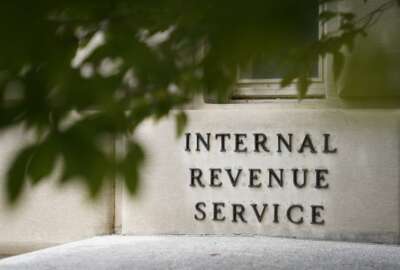Agencies would have an easier time approving pay bonuses under OPM proposal
A new proposed rule from OPM aims to offload a bit of transactional work and let the agency focus more on governmentwide human capital policy.
Agencies will soon get more authority when offering pay incentives to their employees, according to a new proposed rule from the Office of Personnel Management.
The proposal is a way for OPM to offload a bit of transactional work and instead focus more on governmentwide human capital policy. At the same time, OPM said the change should help agencies speed up recruitment — and ideally better retain federal employees.
“This will allow agencies to move more quickly in hiring new employees and relocating those who are moving into positions that are likely to be difficult to fill,” OPM said in its proposed rule, published Nov. 15 in the Federal Register.
Faster recruitment “could be especially helpful in emergency or other critical situations in which recruiting new employees or relocating current employees rapidly is necessary,” OPM added. “Also, with increases in the number of retirement-eligible employees, recruiting early-career and experienced talent to the federal workforce is a high priority.”
Agencies can already offer annual pay bonuses equal to 25% of an employee’s base salary for up to four years — without the need to go through OPM. Agencies can offer larger bonuses, too, but currently they have to get OPM approval before issuing them to eligible employees.
But OPM has now proposed shifting the required sign-off on a waiver to approve higher pay bonuses to individual agencies, rather than OPM. With a waiver, agencies can approve annual bonuses of up to 50% of an employee’s base salary for two years.
In other words, the proposed rule would change how large of bonuses agencies can internally approve for employees.
The proposed rule applies to pay bonuses offered to federal employees who are being either hired or relocated. The incentives can be paid to employees in multiple installments, but with a cap on the bonus equal to the employee’s total base salary.
The goal, in part, is to “reduce administrative burden on agencies and increase the efficiency of using recruitment and relocation incentives,” OPM said.
Notably, the proposed rule wouldn’t change the end dollar value that an employee could receive via recruitment or relocation bonuses. Federal employees cannot receive more than the sum of their base salary through these incentives.
Additionally, recruitment and relocation incentives still have to abide by other regulations. These larger pay incentives are typically reserved for hard-to-fill federal positions. Agencies would have to designate an internal official to make those determinations, OPM said.
The proposal also only makes changes to recruitment and relocation-based pay incentives. Due to legal constraints, OPM said it cannot currently make changes to the regulations around retention-based incentives.
In addition to giving more authority to agencies, the proposed rule would also remove the six-month minimum on-the-job requirement for employees before they can qualify for a pay incentive. OPM said this change would help more easily fill short-term and temporary positions.
“For example, this would allow an agency to determine that a summer internship position is likely to be difficult to fill and authorize a recruitment incentive for an intern with a three-month service agreement,” OPM said.
There will be some upfront work for agencies, OPM said, in transferring these responsibilities. Agencies will have to review the rule, once finalized, and update their policies and procedures accordingly.
It’s unclear how much the proposed rule would affect agencies’ actual use of the incentive flexibilities. Without having the extra step of going to OPM for approval, it’s possible that agencies would be more inclined to approve more recruitment and relocation incentives for employees. But the requirements for offering bonuses are not changing — and it’ll still depend on budget constraints as well.
“Approval of a waiver is not automatic, and agencies will need to use discretion in granting waiver requests,” OPM said. “In addition, agencies will need to make determinations about whether they have funds available in their budgets to provide waivers.”
OPM said the proposed rule came in response to a recommendation from the National Academy of Public Administration (NAPA) a few years back.
In a 2021 report, among many recommendations, NAPA said OPM should “adopt a more decentralized and risk-based approach to executing its transactional approval and oversight responsibilities by delegating, to the maximum extent possible, decision-making authorities to agencies and conducting cyclical reviews to ensure compliance with relevant laws, regulations and policy guidance.”
OPM said the proposed rule should make it easier to offer the incentive flexibilities, and in theory will free up time for OPM to focus on more policy-oriented priorities.
OPM’s proposed rule will remain open to public comment until Jan. 16, 2024.
Copyright © 2025 Federal News Network. All rights reserved. This website is not intended for users located within the European Economic Area.
Drew Friedman is a workforce, pay and benefits reporter for Federal News Network.
Follow @dfriedmanWFED






